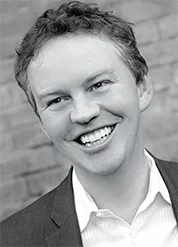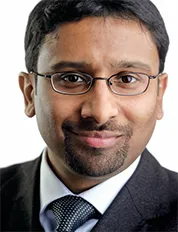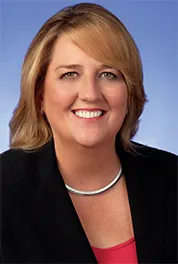Students to Scholars: Teaching the Legal Academic Process
It is safe to say that all students who choose the Law School come here for the stellar education it provides. For most, that means getting a phenomenal grounding in the core of business or constitutional law, for others it is the chance to study with extraordinary legal scholars in a variety of fields. But for some, it is to learn about the legal academy itself, to gain an understanding of and facility with law as a scholarly enterprise. For these JD students, the opportunities to see the Law School faculty come together in workshops to discuss, analyze, and critique their own papers are greatly prized. Perhaps even more, these students want to have that experience with their own papers. The Law School today offers two opportunities for the students to immerse themselves deeply in the kind of scholarly work that is the hallmark of law professors. Both offer unparalleled opportunities to work closely with faculty members on the writing skills critical for any lawyer, along with critical reading and presentation. These skills are invaluable to students who wish to become law professors—and even for those who do not.
Canonical Ideas in Legal Thought
Most law students only see two aspects of what professors do: classroom teaching and finished scholarship,” says Thomas Miles, Clifton R. Musser Professor of Law and Economics and Walter Mander Research Scholar. “Until they have the opportunity to produce their own scholarship, they never see what goes into a finished piece of work—the review of the literature, the formation of an idea, the creation of outlines and drafts, the process of getting and evaluating feedback, the incorporation of feedback into iterations of drafts, and so on. As long as we intend to seriously train students to be academics, that is the exposure we need to provide.”
This year, Miles and Lior Strahilevitz, Sidley Austin Professor of Law, are offering a new course for aspiring academics entitled Canonical Ideas in Legal Thought. Miles and Strahilevitz spend the fall quarter working with students through a set of the most iconic works of American legal scholarship (see sidebar).
“During my first year on the faculty here,” Strahilevitz explains, “I discovered all the ways in which my own legal education had been deficient. I would show up at a faculty roundtable lunch and everyone at the table would reference terms and ideas with which I was unfamiliar. After doing my best to piece stuff together and asking the occasional ‘stupid question,’ I would spend my afternoon reading the articles that I wish I had read years earlier. I decided to co-teach this class because I wanted to help give Chicago students early exposure to ideas with which mature legal thinkers are expected to be conversant.”
Each student in the class becomes a discussion leader for one of the canonical works. “It forces students to stand at the front of the room and teach the article, which most of them have never done before,” Miles notes. Miles and Strahilevitz each present during one of the first two weeks to provide examples and to show how different styles can be effective.
Courtney Cox, ’14, has already earned a PhD from Oxford in Philosophy, so this process was more familiar to her than to most of her classmates. She particularly enjoyed working with and presenting Ronald Dworkin’s famous 1975 article, “Hard Cases,” because “law is so interdisciplinary. Discussing these articles with a group that doesn’t necessarily have a philosophy background put a new spin on presenting academic work.”
Cox finds this work with the canon to be very similar to Oxford’s approach to graduate philosophy studies: students discuss what the central pillars of their areas are and why, they work to create their first projects, and then learn how to give and receive constructive feedback, which is especially challenging in areas outside their own expertise.
While wrestling with the canon in the fall quarter, students write four reaction papers that critique one or more of the assigned works for a given week. “We want students to think critically about all these readings, their canonical nature notwithstanding,” Strahilevitz says. “Every great argument has its problems, and a good legal scholar or lawyer has to be able to identify them and contextualize them.”
Of course, students’ growing familiarity with the canon changes the way they approach their own work. “It’s really exciting and different to spend time looking at these foundational pieces,” David King, ’14, explains. “I’ve often read excerpts from them in other classes, or heard the ideas, but this is usually the first chance I’ve had to really delve deeply into the entire article.”
Ryan McCarl, ’14, agrees. “The material from these papers comes up all the time in my other classes,” he notes. “These ideas pop into my mind all the time.”
Once the foundation has been laid, students devote the winter and spring quarters to creating papers of publishable quality. In the winter quarter, the class does not meet together, but instead students work individually with Miles and Strahilevitz to hone an idea, often born from their reaction papers, and then to create an outline and a draft.
Full drafts are due at the beginning of spring quarter, and this is the first chance students have to read each other’s work. Each student then presents his or her paper as they would in a faculty workshop. All participants are expected to read the drafts very carefully and provide substantial feedback.
But students are not the only ones receiving feedback. Miles and Strahilevitz intend to workshop their own papers with the class. “Tom and I think that insofar as possible all participants in the seminar should be equals,” Strahilevitz says. “We teach, they teach. We write, they write. We are giving them a ton of feedback on their abstracts, outlines, and papers, but come spring we think they will gain as much valuable guidance from each other as they will from us. At every juncture, we have been wowed by how smart, creative, and constructive the students have been.”
The paper topics vary as widely as the students’ interests. King is writing about an aspect of the rules/standards dichotomy in constitutional law, while Cox is writing about trade secrets. Aimee Brown, ’14, is looking at the judicial confirmation process, and McCarl is examining rulemaking in homeowners’ associations.
What kind of student will get the most out of the class? Miles says he looks for a spark of creativity in the students, but that isn’t sufficient. They need to be capable of having a novel idea that moves their field forward and also need to craft an article that fleshes it out. Finally, they need to be able to present the idea to others. “Chicago believes in the workshop process,” Miles says. “It is critical to be able to receive and incorporate feedback.”
But does this mean that everyone in the class is destined for a life in legal academia? Right now that is unclear. Cox, who has already spent a great deal of time in the academic world, is very excited to try out litigation this summer and still doesn’t know where her career will take her. Similarly, Brown says that she doesn’t know yet if it is what she wants to do, but now she feels she has a much better understanding of what it would be like. “It is such an enjoyable experience that it really increased the chances,” she adds. McCarl knows he wants to teach and write in some capacity, but thinks it is impossible to say as a law student that he definitely wants to be a professor. “It’s such a narrow road, but I want to leave that door open,” he explains. “It’s incredible to have so many opportunities here to do theoretical work, and the skills I’m learning will be useful even if I don’t end up a law professor.”
By the end of Canonical Ideas, students will have completed a polished piece of legal scholarship that can help them to move forward in an academic career. For some students, this will be a writing sample for a clerkship or may be published. For others, it will serve as the springboard for their futures elsewhere in the legal profession.
“With the changes in law firm practice, it is really no longer possible to work full time and write a scholarly article on the side, the way previous generations did,” Miles explains. “Our graduates often need to take fellowships before becoming academics just to get some unfettered time to create a portfolio of writing. Students who take our class will end up with a piece at the end that may mean they can go directly onto the academic job market if they choose to do so.”
Strahilevitz is confident that he is helping to form some of the best legal minds of the future. “There are going to be first-rate academics coming out of this group of students—I’m certain of that,” Strahilevitz notes. “There are also going to be students who think they might want to be law professors, but they discover by the end of the year that their hearts aren’t in it. We regard both of those outcomes as success stories.”
Legal Scholarship Workshop
Lisa Bernstein, Wilson Dickinson Professor of Law, started the Legal Scholarship Workshop nearly a decade ago to give Law School students the opportunity to learn firsthand the ins and outs of creating, presenting, and constructively critiquing legal scholarship. In the fall quarter each year, Bernstein structures the course to show students the fundamental building blocks of an academic paper. She asks them to consider what it means to have a scholarly take on a question that goes beyond a law review note and to move away from narrow legal question into a wider arena.
“We give a lot of workshops and seminars with very senior people who are presenting drafts that are nearly final,” Bernstein notes. “And it is a wonderful experience for the students, but it makes it difficult for them to know how to go about creating their own scholarly work. It’s a challenge for students to go from a blank computer screen to the work presented at one of these workshops. Plus, the topics are not necessarily what new scholars should be thinking about working on.”
Throughout the first quarter, assistant law professors from around the country—often not only Law School alumni, but alumni of the Workshop—come to class to present papers in different stages and to receive criticism from the students. Students painstakingly read the work, break down the arguments, look at the evidence, and begin to learn to identify a good topic for a junior scholar to undertake.
“Lisa’s students are so thorough, I would have been more comfortable presenting in front of the faculty than in front of the class,” explains Zoe Robinson, ’08, Assistant Professor of Law at DePaul College of Law. “The students are very ambitious, and many of them want to be scholars, they want to prove themselves. They read every word of your paper, they understand the nuances, and they ask very clever questions in a completely constructive way. They understand how to tear a paper apart and how to help the scholar to put the paper back together in a helpful way. It’s terrifying because you know you are going to be critiqued on everything—your presentation, your gestures, your paper—but you really get what you need to improve your work.”
The workshop experience, for which Chicago Law is so well known, is something many graduates still crave.
“I go back now to present to the students, and I prepare like I am going to present to the faculty of a top-10 law school,” explains Franita Tolson, ’05, Betty T. Ferguson Professor of Voting Rights at Florida State University College of Law. “In real life, the faculty do not read your paper, or if they do, not very carefully. These students rip your paper to pieces. The interaction really helps you to assess the quality of good legal scholarship.”
Guest presenters come in for about two hours. During the first hour, the speaker gives a 20-minute talk and then takes questions for the next 40 minutes. In the second hour, the class focuses on aspects of public speaking and on the structure and content of the papers, then discusses exercises they can use to learn to become better presenters.
“I have done it a couple of times now, and every time it was surprising and full of interesting, great comments,” says Shahar Dillbary, LLM ’03, JSD ’07, Associate Professor of Law at the University of Alabama Law School. “You try to figure out ahead of time what will be their attack, their angle, and they always find some new way to make you go deeper, even to the edges of the paper. It is a huge, huge benefit.”
While criticism is a huge part of the first quarter, the key is that critiquing is taught as a constructive skill that can be used in any legal career, whether it be in practice or academia. “We were not taught to just rip apart a person or his ideas,” explains Rachel Levy, ’04, Attorney Advisor in the Office of Tax Policy, U.S. Department of Treasury. “We were taught to see holes, to critique, and to find positives—and if we found negatives, to figure out ideas that would bring solutions. This is helpful in all kinds of law because when you look at something, in my case a regulation, it is easier to make it better.” The second quarter of Bernstein’s class is about creating a community of scholars. Students look at different topics for the scholarly papers they will write and have others in the class pick their thinking apart to determine if it is a viable project. Students attend a weekly roundtable, after which they spend the next week doing additional research to make their topics and outlines stronger. The whole process of writing a paper is broken down into pieces, and after a few weeks students begin working on their projects more independently.
“But it is not just Law School students who attend the Workshop,” notes Bernstein. “We get game theorists, moral philosophers, political science grad students; we even sometimes have post-docs who come. After all, the skill of knowing how to identify a viable topic and then how to build a strong, well-constructed argument is vital across all disciplines.”
The third quarter of the Workshop bears a strong resemblance to the first, except that this time, it is the students in the class who are presenting their papers at different stages of completion. The goal, according to Bernstein, is to teach students what it is like to be on a faculty like that of the Law School, one where scholars bring their work for input, assistance, and critique.
“Learning to build an academic paper from scratch gives us a lot more than confidence,” Robinson says. “It is one thing to think you can analyze a paper, it is another to ask a question in front of Richard Epstein. Working all the way through the process and finishing with a real piece of scholarly research helps us to really think like faculty.”
The breadth of application of the skill set learned in these classes is borne out by their alumni, who have often found that the skills they acquired were invaluable in the practice of law. “Lisa’s class is actually a lot like a meeting at a law firm, especially the second and third quarters,” notes Jamie MacLeod, ’12, an associate at Williams and Connolly. “It’s like working on a litigation team where you develop ideas over a fairly long period of time and all the minds in the room feed off of each other. Plus, you need a certain amount of tact to get ideas and criticisms on the table—at a firm you don’t want to go around offending everyone you work with. It really teaches you to work with other attorneys.”
By the end of the Workshop, students have developed an academic paper worthy of professional evaluation. For many, this process is exhilarating and allows them to understand that what they truly want is a career in academia. For others, it gives them tools that will help them in any kind of legal career. “Taking Lisa’s class was the best choice I made as a student,” Tolson remarks. “I had to interview to get in and the experience completely changed my life. When I started I wasn’t sure if I wanted to be a legal academic, but after learning to really assess the quality of legal scholarship, not just substance, what you should be thinking about as a scholar, I knew I had found what I wanted to do with the rest of my life.”


